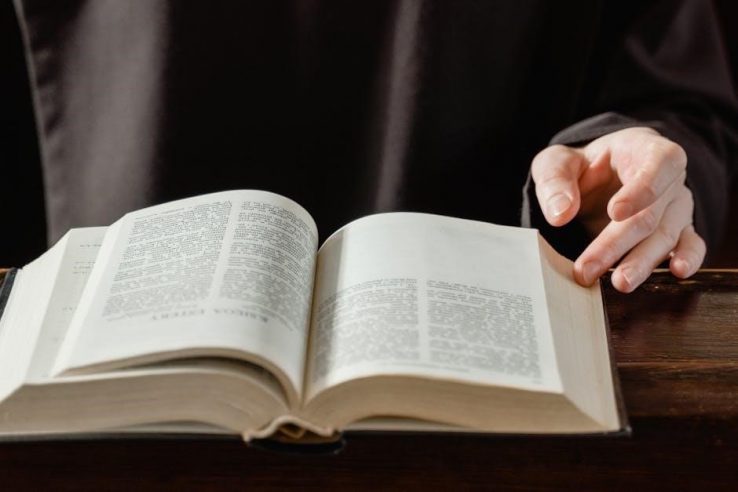Catholic deliverance prayers are powerful tools for seeking freedom from spiritual afflictions. They emphasize forgiveness, healing, and protection, drawing strength from the Blessed Trinity and sacramentals like the Precious Blood of Jesus Christ.
1.1 What Are Deliverance Prayers?
Deliverance prayers are sacred invocations seeking freedom from spiritual oppression, evil influences, and inner turmoil. Rooted in Catholic tradition, they involve renouncing sins, both personal and ancestral, and pleading for divine protection. These prayers often invoke the power of Jesus Christ, the Holy Spirit, and sacramentals like the Precious Blood. They aim to restore peace, healing, and liberation, fostering a deeper relational bond with the Blessed Trinity and the Church. They are typically phrased for self-use, emphasizing faith, forgiveness, and surrender to God’s will.
1.2 The Purpose of Deliverance in Catholic Tradition
The purpose of deliverance in Catholic tradition is to free individuals from spiritual bondage, fostering inner peace and healing. It restores the soul to God’s grace, enabling a deeper relationship with Christ and the Holy Spirit. Deliverance addresses both personal and ancestral sins, promoting forgiveness and liberation. Rooted in faith, it emphasizes relational love with the Blessed Trinity, aligning with the Church’s teachings on healing and freedom, and is often facilitated through prayers, sacramentals, and community support.

Key Elements of Catholic Deliverance Prayers
Catholic deliverance prayers emphasize forgiveness, healing, and protection, utilizing sacramentals like the Precious Blood of Jesus. They focus on relational love with the Blessed Trinity, fostering freedom and inner peace.
2.1 The Role of Jesus Christ in Deliverance
Jesus Christ is the cornerstone of Catholic deliverance prayers, offering healing and freedom through His Passion and Precious Blood. His sacrifices and divine love provide the power to overcome spiritual afflictions, bringing peace and liberation to those who seek refuge in Him. By invoking His name, believers access His redemptive grace, essential for deliverance and spiritual renewal.
2.2 The Importance of the Holy Spirit in Healing
The Holy Spirit plays a vital role in healing and deliverance, bringing divine grace and transformation. Through His presence, believers experience inner peace, emotional restoration, and liberation from spiritual burdens. The Holy Spirit empowers prayers, fasting, and sacraments, guiding the faithful toward wholeness. His gifts, such as discernment and courage, aid in overcoming darkness, making Him indispensable in Catholic deliverance practices. The Spirit’s healing touch renew the soul, fostering a deeper connection with God’s love and mercy.
2.3 The Use of Sacramentals in Deliverance
Sacramentals, such as exorcised oil, holy water, and blessed objects, are integral to Catholic deliverance prayers. These sacred tools, imbued with divine grace, assist in warding off evil and fostering protection. The use of sacramentals, like anointing with exorcised oil, helps consecrate individuals to God, seeking freedom from spiritual afflictions. Their application in prayers underscores the Church’s belief in their efficacy to purify and shield the faithful, drawing from the power of the Blessed Trinity and the intercession of the saints.

Common Deliverance Prayers in Catholicism
Catholic deliverance prayers often include petitions for freedom from evil spirits, healing, and inner peace. They invoke the Precious Blood of Jesus and sacred sacramentals for divine protection and liberation.
3.1 The Prayer for Deliverance from Evil Spirits
This prayer seeks liberation from evil influences, invoking Jesus’ power and the Holy Spirit. It often includes renouncing sins, both personal and ancestral, and asking for protection through the Precious Blood of Christ. The prayer emphasizes relational love with the Blessed Trinity, focusing on holiness and freedom from spiritual bondage, rather than just formulaic recitation. It is typically prayed by the laity for personal deliverance, using exorcised oil and sacramentals for consecration and healing.
3.2 Prayers for Healing and Inner Peace
Prayers for healing and inner peace are central to Catholic deliverance, seeking to restore emotional and spiritual well-being. They often invoke Jesus Christ and the Holy Spirit, asking for divine mercy and the healing of wounds that cause anxiety. These prayers emphasize relational love with the Trinity, focusing on liberation from torment and the renewal of one’s soul through Christ’s Passion and the intercession of the Blessed Virgin Mary, bringing peace and freedom from spiritual afflictions.
3.3 The Role of the Precious Blood of Jesus in Deliverance
The Precious Blood of Jesus holds a profound significance in Catholic deliverance prayers, offering salvation and protection. It is invoked to heal wounds, save souls, and set the faithful free from evil influences. Through its power, believers seek liberation from ancestral sins and spiritual torments, trusting in Christ’s sacrifice as a divine remedy for their afflictions and a source of enduring peace and freedom from darkness, bringing them closer to God’s loving embrace and eternal grace.
The Catholic Handbook of Deliverance Prayers
The Catholic Handbook of Deliverance Prayers, authored by Jose Francisco C. Syquia, offers a comprehensive collection of prayers for healing and liberation. Available as a free PDF or text download, it serves as a valuable resource for those seeking spiritual freedom and inner peace through divine intervention and sacred traditions.
4.1 Overview of the Handbook by Jose Francisco C. Syquia
Jose Francisco C. Syquia’s Catholic Handbook of Deliverance Prayers is a detailed guide offering prayers for spiritual liberation and healing. It emphasizes forgiveness, ancestral sin, and protection, drawing from Catholic traditions. The handbook is widely used for personal and communal deliverance ministries, providing structured prayers and rituals. Available as a free PDF or text file, it serves as a practical tool for seeking freedom and peace through Christ, aligning with teachings on exorcism and spiritual warfare within the Catholic Church.
4.2 How to Use the Handbook for Personal Deliverance
Using the handbook for personal deliverance involves prayerful reflection and faith. Begin with repentance, seeking forgiveness for personal and ancestral sins. Utilize the structured prayers to renounce evil influences and invoke divine protection. Focus on healing through the Precious Blood of Jesus and the power of the Holy Spirit. Regularly recite the prayers, trusting in God’s mercy and grace. This approach fosters spiritual freedom and inner peace, aligning your life with Christ’s redeeming love and the teachings of the Catholic Church.

The Role of Faith and Repentance in Deliverance
Faith and repentance are essential for deliverance, enabling individuals to seek forgiveness for personal and ancestral sins. Through sincere repentance, one opens to the Holy Spirit’s healing power.
5.1 The Necessity of Forgiveness in Deliverance
Forgiveness is a cornerstone of deliverance, allowing individuals to release sin’s bondage and open their hearts to divine healing. Seeking forgiveness for personal and ancestral sins creates a pathway for spiritual liberation, enabling the Holy Spirit to restore peace and freedom. Through sincere repentance, believers can break generational curses and experience profound inner healing, fostering a deeper connection with God and His redemptive power. Forgiveness cleanses the soul, preparing it for the transformative work of deliverance.
5.2 The Importance of Ancestral Sin Forgiveness
Ancestral sin forgiveness is crucial in deliverance, as unresolved sins of forefathers can manifest as spiritual bondage in descendants. Seeking forgiveness for inherited sins breaks generational curses, freeing individuals and families from their grip. This liberation allows for healing and renewal, aligning with the Holy Spirit’s work in deliverance. Prayer and renunciation of these sins are vital steps toward complete freedom, emphasizing the power of Christ’s redemptive sacrifice to restore peace and wholeness.
Practical Steps for Using Deliverance Prayers
Prepare with confession, fasting, and seeking community support. Use sacramentals like holy water and exorcised oil. Focus on forgiveness and renouncing sins, trusting in Christ’s liberating power.

6.1 Preparing for Deliverance Prayer
Preparation is essential for effective deliverance prayer. Begin with confession and sacramental reconciliation to cleanse the soul. Fast and pray, seeking humility and openness to the Holy Spirit. Renounce sins, especially ancestral ones, and forgive others. Use sacramentals like holy water and exorcised oil for protection. Trust in Christ’s power and embrace relational love with the Blessed Trinity, focusing on holiness and freedom from spiritual bondage.
6.2 The Role of Community in Deliverance Ministry
The community plays a vital role in deliverance ministry by providing support and prayer. Collective prayer strengthens individuals, fostering a spiritual environment conducive to healing. Sharing testimonies and experiences builds faith and unity. The focus remains on holiness and relational love with the Blessed Trinity, rather than charisms, ensuring a balanced and humble approach to deliverance. Community involvement enriches the journey toward freedom and spiritual growth.
The Effectiveness of Deliverance Prayers
Deliverance prayers are effective in healing and freeing individuals from spiritual burdens. Testimonies highlight their power in restoring peace and liberation through faith and divine intervention.
7.1 Testimonies of Healing and Freedom
Many testimonies reveal the transformative power of Catholic deliverance prayers. Individuals share stories of liberation from emotional turmoil, spiritual oppression, and generational sins. The Precious Blood of Jesus is often highlighted as a source of healing and protection. Through these prayers, people find freedom from evil influences and experience profound inner peace. Such accounts underscore the effectiveness of deliverance prayers in restoring lives and deepening one’s relationship with the Blessed Trinity.
7.2 The Power of Relational Love with the Blessed Trinity
Deliverance is deeply rooted in relational love with the Father, Son, and Holy Spirit. This bond fosters intimacy, trust, and surrender, essential for true freedom. The Blessed Trinity’s love transforms lives, offering healing and liberation from spiritual darkness. Deliverance is not merely a formula but a relational journey, emphasizing holiness and dependence on divine grace. Through this love, individuals experience profound peace and freedom, reflecting the heart of Catholic deliverance prayers.
Catholic deliverance prayers offer a powerful path to spiritual freedom, emphasizing faith, forgiveness, and healing through Christ. They invite believers to seek profound peace and liberation in Him.
8.1 Final Thoughts on Deliverance Prayers
Catholic deliverance prayers are a powerful means of seeking spiritual freedom and healing. Rooted in faith, they emphasize forgiveness, protection, and the transformative power of the Holy Spirit. By renouncing sin and embracing Christ’s mercy, believers can find peace and liberation. These prayers, often accompanied by testimonies of healing, remind us of God’s loving intervention in our lives. They invite us to trust in His divine plan and seek deliverance with humble hearts, confident in His boundless love and grace.
8.2 Encouragement to Seek Freedom in Christ
Seeking freedom in Christ through deliverance prayers is a profound act of faith. Trust in His mercy and love, for He desires to heal and set us free. Embrace these prayers with an open heart, knowing they are a powerful means of spiritual renewal. Remember, deliverance is not just a formula but a relational journey with the Blessed Trinity. Step into the liberty Christ offers, and let His grace transform your life, bringing peace and joy in His presence.
